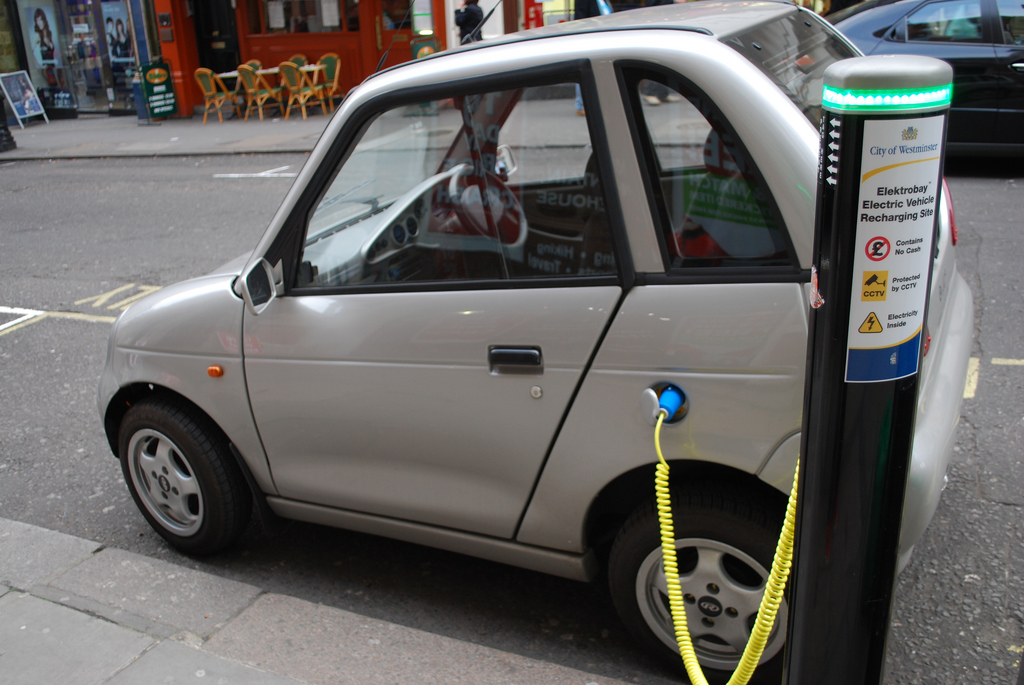Electric cars powered by the burning of biomass would “average 81% more transportation kilometers and 108% more emissions offsets per unit area cropland than cellulosic ethanol” according to a recent study, and climate science guru James Hansen has declared implementation of biomass crucial to combating climate change, but those endorsements won’t make a bit of difference if few bio-electricity plants are built due to pollution and sustainability concerns.
At least that’s the state of play here in Massachusetts, where 5 biomass plants are proposed and face big hurdles. Two are further along than the rest: Russell Biomass proposes a 50 MW plant along the Westfield River in the south-central part of the state, and Pioneer Renewable Energy is proposing a 47 MW plant just east of Greenfield, Mass., near the Vermont border.
Western Massachusetts is an environmentally-minded region rich with wood resources (it’s 70% trees), yet each proposal has attracted notable grassroots opposition, and for some good reasons. Russell’s proposal is being opposed due to disputes over siting, pollution, and large water withdrawals from the Westfield, as outlined by Concerned Citizens of Russell. The Greenfield plant is opposed by a broad coalition of individuals, 450 of which packed a zoning board hearing recently, on pollution, trucking, and sustainabiiity questions.
In 2002 Massachusetts adopted a Renewable Portfolio Standard (RPS) to encourage the generation of clean, renewable electricity in the state using indigenous resources such as wind, solar, and biomass. Under this legislation, Massachusetts must generate 20 percent of its electricity from renewable sources by the year 2025. Which explains the state’s enthusiastic support for these projects.
A resource assessment performed as part of the Massachusetts Sustainable Forest Bioenergy Initiative found that there is enough sustainable, harvestable wood within the state to meet the needs of a 150 MW facility. In their words, “Early studies indicate that as much as 4 million tons of woody biomass could be produced annually in Massachusetts, mostly from forests and forest products industries. Utilizing only half that volume for the production of electricity would represent an estimated 150 MW of renewable generation, and substantial rural economic development associated with the fuel supply.”
So by their own math, 5 plants at 50 MW would exceed the sustainable wood supply. Presumably wood would also be imported? Another point of confusion for many citizens is if trees fix carbon, why do we want to burn so many for energy? While these questions could be adequately answered or at least attempted, the state has done itself no favors in terms of providing answers, and worse, recently put its foot in its mouth: asked at a recent hearing, a state forester admitted that they lack a definition or a sense of what “sustainable harvest” would look like.
The state also stumbled by approving Pioneer’s Massachusetts Environmental Policy Act (MEPA) review without requiring an environmental impact report on the effects of the operation. Certainly, an examination of air pollution, particulates, trucking, and sustainable supply should be undertaken: so says a citizens’ group that has now served the secretary of Energy and Environmental Affairs with an intent to sue on this issue.
The proposals would be more palatable at least if they planned to capture heat for district heating or industrial use, but despite some rhetoric from the project proponets seemingly indicating a willingness, the reality appears to be that these plants will be focused solely on producing electricity, putting them at a very low efficiency rating (20 percent by many estimates vs 80 percent for combined heat and power) in terms of getting full value from the available BTUs of the feedstock. In the words of one opponent, “use the resource wisely or not at all.”
Certainly biomass can be done right, generating both heat and power and at a community scale. A hospital in the city of Northampton, between Russell and Greenfield, has a biomass plant, but the scale is much more appropriate.
And that’s what it boils down to in cases like this too often. Too much money is at stake to create sensible, appropriate projects, “renewable” or not, when there are shareholders to pay.



